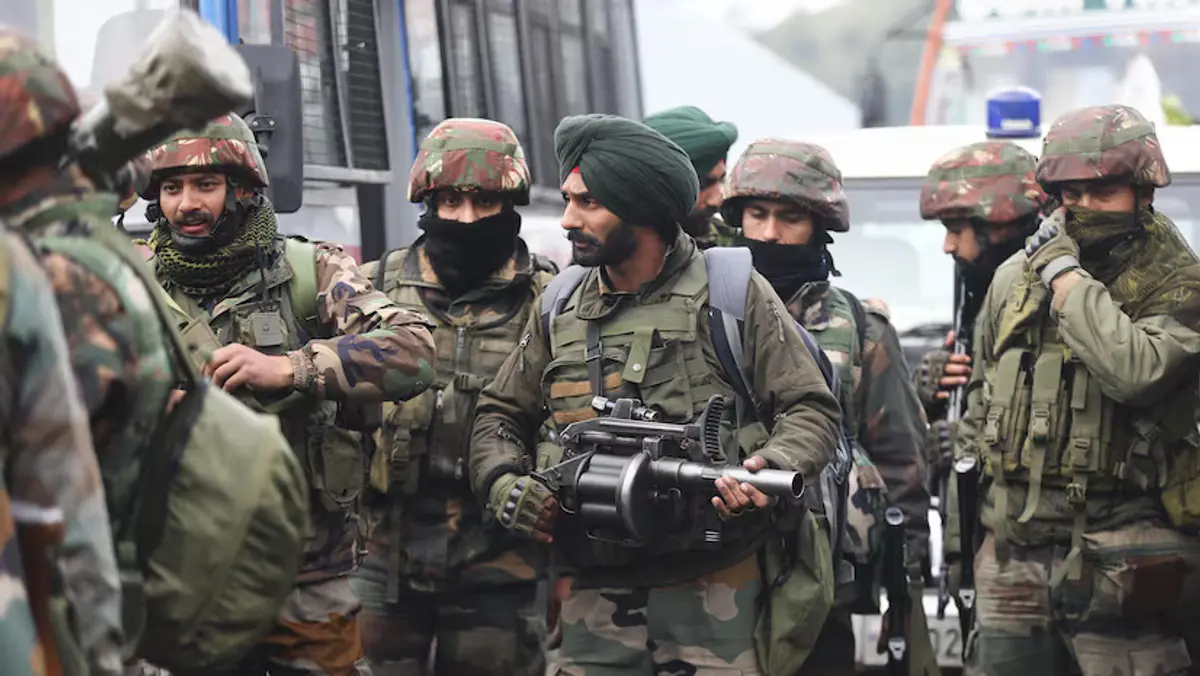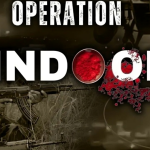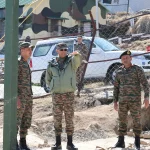Security forces are currently engaged in a fierce gunbattle with four terrorists in the Awneera area of Shopian district, including two confirmed foreign nationals. The operation began early Monday morning following credible intelligence inputs, and remains active as forces work to neutralize the threat.
The encounter comes at a time of heightened security operations across Jammu and Kashmir, especially following the April 22 Pahalgam terror attack that claimed 26 civilian lives. However, officials have clarified that, as of now, there is no confirmed connection between the Shopian terrorists and the group responsible for the Pahalgam killings.
According to sources, a cordon-and-search operation was launched in the early hours based on specific intelligence. Upon locating the suspects, an exchange of fire ensued. Authorities have refrained from releasing further operational details, citing the need to protect the lives of personnel involved and to maintain tactical advantage during the ongoing mission.
This latest encounter underscores the ongoing threat posed by foreign terrorists operating in Jammu and Kashmir, despite sustained counter-insurgency efforts since the abrogation of Article 370 in August 2019. The Indian Army and local police forces have conducted extensive operations in recent years, declaring several regions—including Doda and Tral—militancy-free by 2020. However, districts like Shopian remain volatile, often witnessing encounters with militants linked to groups such as Lashkar-e-Taiba (LeT).
The timing of this encounter, amid the aftermath of the Pahalgam attack, has drawn attention. That attack was carried out by The Resistance Front (TRF), a known proxy of LeT, and reportedly involved Pakistani nationals. Investigations revealed logistical support from safe houses in Muzaffarabad and Karachi, and authorities had placed a ₹20 lakh bounty on the identified attackers.
Historically, the insurgency in Jammu and Kashmir has been marked by significant foreign involvement. Between 1989 and 2002, security forces seized over 40,000 weapons and 150,000 explosive devices, much of it originating from cross-border networks. The current presence of foreign terrorists in Shopian again points to Pakistan’s continued role in aiding and abetting terror activities within Indian territory—a key factor in the strained India-Pakistan relationship.
Security forces continue to maintain high alert across the Valley, with reinforcements deployed and civilian movement in the area restricted. The public has been advised to stay away from the operation zone and rely on official communication for updates.
The Shopian encounter serves as a sharp reminder of the persistent insurgency challenge, and of the critical importance of vigilance, coordination, and strategic response in ensuring peace and stability in the region.













